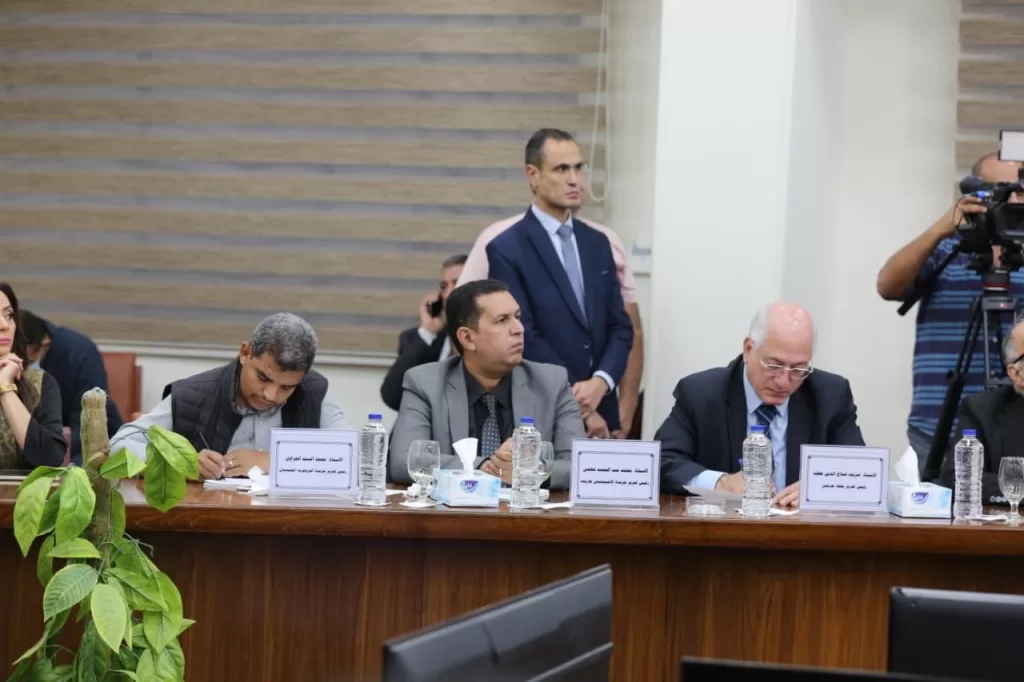Means to enhance collaboration with the Ministry of Education and Technical Education topped the agenda of an extensive symposium held in the premises of the National Press Authority (NPA) on Tuesday .
The symposium came within the framework of the state’s goals to improve educational quality, with a view to aligning outcomes with labour market demands.
Board chairmen of state-run press institutions and editors-in-chief of national publications attended the event.
Talks between the head of the NPA, Abdel Sadek el-Shorbagy, and Minister of Education Mohamed Abdel Latif focused on recent advancements introduced to the system of education.

They also reviewed the ministry’s efforts to tackle educational challenges.
During the event, el-Shorbagy appreciated strenuous efforts exerted to address challenges in pre-university education, reduce classroom density, and manage teacher shortages, according to a statement published on the NPA’s official Facebook page.
El-Shorbagy reaffirmed that the Egyptian state has attached paramount importance to developing pre-university education.
The national press, he said, plays an essential role in promoting public awareness about the necessity of upgrading education for the benefit of the upcoming generations and in line with the requirements of the regional and global job markets.
El-Shorbagy told the gathering that the national press has a great role to play in correcting information and quashing rumors that undermine the state’s efforts to upgrade education.
The head of the NPA pointed out to the national role of media in supporting state development goals and ensuring a prosperous future for Egyptian generations.
For his part, the minister of education acknowledged the national press’s critical role in building awareness and supporting state institutions.
Abdel Latif stressed that the pre-university education system, the largest in the Middle East and North Africa (MENA) region, serves over 25 million students and employs roughly 843,490 teachers. He referred to the ongoing efforts to address challenges like high student-to-teacher ratios and classroom overcrowding.
The minister paid tribute to Egypt’s teachers, calling them “a true asset” in advancing the nation’s educational standards.
The minister reviewed steps taken to address classroom density, increase the number of teachers, and improve working conditions. These efforts included the establishment of 98,744 additional classrooms and the execution of the presidential initiative to employ 30,000 new teachers annually, aiming to bridge the teacher gap by 90%.
Abdel Latif said that his ministry has introduced a number of measures focusing on improving the skills of students. These measures included a structured attendance system,enhanced student activities in coordination with the Ministry of Youth and Sports, and curriculum adjustments.
The minister unveiled a raft of strategies to make artificial intelligence a core subject for secondary-stage students as of the next academic year, equipping them with essential digital skills.
Discussions also covered secondary education reform, technical education advancements, and strategic initiatives to instill patriotism among rising generations.
At the conclusion of the symposium, el-Shorbagy presented the NPA’s shield to the minister of education, in recognition of his achievements in reforming educational system.






Discussion about this post